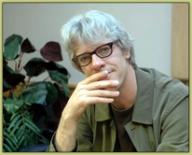 Stewart Armstrong Copeland was born in Virginia on 16 July 1952. His mother Lorraine Adie was an archaeologist. His father, Miles Copeland Jr. was a highly rated jazz trumpeter of his day. Stewart Armstrong Copeland was born in Virginia on 16 July 1952. His mother Lorraine Adie was an archaeologist. His father, Miles Copeland Jr. was a highly rated jazz trumpeter of his day.
Stewart is the youngest of four children. He has a sister called Leonora (Lennie) born in 1946 and two brothers: Ian, who lived in the States and headed a music agency called FBI,born in Damascus, Syria in 1949, and Miles Axe Copeland III born in London in 1944, who managed The Police and a variety of small record labels.
|
| |  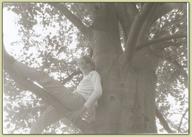 1952 -1966 : Childhood When the war came, Miles Copeland was out in the boondocks in Louisiana and called a friend of his, Senator Sparkman of Louisiana, to offer his services. Sparkman used his connections to get him into Army Intelligence and he moved to Washington, DC, and worked from the old CIA offices near the Lincoln Memorial. It was during this period that Stewart was born.
Miles worked for John Foster Dulles in the State Department and when Stewart was nine months old, his father was posted to Cairo to help Nasser organize a secret service. His office was right next door to Nasser's for several years and they became very close friends.
After Cairo the Copelands returned to America and Miles decided, as a lot of people did at that time, that he was never going to make his fortune in the government and so in 1956 he left the CIA to start his own agency, providing an information service to large American corporations such as Gulf Oil, Mobil Oil, National Cash and Pan Am. He operated through a number of companies, among them Roosevelt Copeland.
Then for ten years from 1957 the family settled in Beirut, Lebanon.
Stewart began playing the drums when he was thirteen in various groups formed by the children of the American Beirut community.
Stewart became fascinated with percussion, and his father bought him a drum kit. One night, at the American beach club, the young Copeland performed for the first time as a substitute drummer for one of the bands.
In 1966 the political situation in Beirut changed dramatically, and the family was given 15 days to leave the country. They fled to England, where Stewart attended the prestigious Millfield school in Somerset.
After Millfield Stewart went to Cal-Western in San Diego, California, where he took first a general course and then studied music.
|
| |  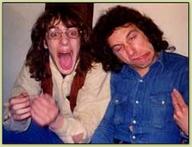 1971 -1973 : From University to music business In 1971 Stewart returned to the United States and entered the University of California at Berkeley to study media and communications., but because of his inability to transcribe music, he was denied acceptance to the music program.
It was not until the end of Copeland's first year in college that an opportunity to work in the music industry was presented by his brothers Miles and Ian. While Stewart was spending his days in classrooms, Miles had maneuvered himself into the world of rock promotion, marketing groups like the Climax Blues Band and Wishbone Ash. Miles and his assistant, Ian, asked Stewart to help manage and promote several bands. Stewart served a brief apprenticeship as a roadie with Wishbone Ash and Renaissance, then Miles decided he was ready for grander endeavours. He appointed Stewart 'artistic director' to his hottest protégés of the moment Cat Iron.
In the summer of '73 Stewart had to give up his 'art' for college again. To profitably bridge the gap between London and California he road-managed Joan Aramartrading on her first trip across the US.He moved to Berkeley for his final university year, but finished two credits short of his degree.
|
|  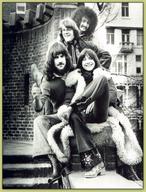 1974 -1976 : First professionnal workWhile back in London, Miles involved Stewart in Curved Air, a progressive-rock band. The band was facing severe financial woes and needed a new drummer so they could regroup, record, and tour in order to get out of debt. Stewart recorded two albums with Curved Air, but was not happy with the band's need for heavily commercial appeal in order to recover the high production costs of their recordings. Though Stewart's tenure with the band was not entirely unproductive; it was Curved Air that introduced him to his future wife, lead singer Sonja Kristina, it seemed to be a no win situation professionally. The bills kept piling up while the excesses of the industry dragged the music down.
After a performance one night in December of 1975, Stewart was invited by journalist Phil Sutcliff to see a live show by a local jazz band. This band, calledLast Exit, was fronted by a singer/songwriter/bassist who immediately caught Stewart's attention. Born Gordon Sumner, this charismatic performer had adopted the name Sting; he struck Stewart as exactly the bass player he had in mind for The Police project. Sutcliff introduced the two and Stewart, despite Last Exit having already signed with Virgin Records and seemingly on the verge of stardom, offered Sting both his phone number and an open invitation for a place to stay and a band to join, should he ever decide to come to London.
In addition, the punk rock revolution was clearly on its way, and both Stewart and Miles were drawn to the simplistic approach of its ideology. Miles later said, “When I started reading about these punks and how they didn't want all this fancy equipment, all this sort of stuff, it was like reading...God had descended and answered my prayers, you know. So when I went and got involved in it, I had even more conviction and even more reason to believe what the punks were saying than they did themselves because I'd been through it and lost.” Stewart, meanwhile, was going through the same transformation, and at that point decided on a three-piece group. |
|  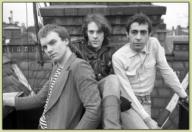 1977-1986 : The Police and Klark KentApparently disillusioned with Newcastle, Sting ultimately did decide to leave, hoping to find success in London. Armed with little more than optimism and Stewart's phone number in his pocket, Sting took to the road with his wife, actress Frances Tomelty, and their son.
Though delighted with Sting's acceptance of his offer, Stewart was uneasy about how Sting and Henry Padovani, the Corsican guitarist Stewart had recruited for the project, would mesh musically. Sting was a confident and sophisticated musician with a jazz background, while Henry was the epitome of a punk guitarist; not much elegance, but all the vibe and energy punk required. Nevertheless, the three went forward, using the few songs Stewart and his brother Ian had composed. Two of these songs, “Fall Out” and Nothing Achieving” comprised the first Police single. But Sting felt he could do much better, musically and lyrically, than the typical punk stylings and started bouncing ideas off Stewart. Together they began churning out songs, some new and others reworked structurally from existing material.
|
| 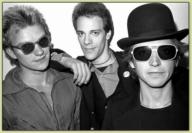 While in France for a Gong reunion, the newly formed trio was asked by Mike Howlett to include a guitar player named Andy Summers to record some material on which he was working. Stewart, Sting, and Henri were impressed with Summer's talent and professionalism, so when Andy asked to join the group after seeing their live show at the Marque, they were quick to accept. Stewart's project was now a quartet. This arrangement worked for a time, but eventually Sting's more complex arrangements proved too challenging for Henri. By this time, the other three band members realized that The Police were going in a different direction and Henri was asked to leave. While in France for a Gong reunion, the newly formed trio was asked by Mike Howlett to include a guitar player named Andy Summers to record some material on which he was working. Stewart, Sting, and Henri were impressed with Summer's talent and professionalism, so when Andy asked to join the group after seeing their live show at the Marque, they were quick to accept. Stewart's project was now a quartet. This arrangement worked for a time, but eventually Sting's more complex arrangements proved too challenging for Henri. By this time, the other three band members realized that The Police were going in a different direction and Henri was asked to leave. |
| 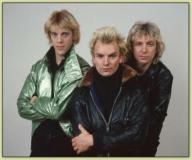 This new direction was clearly evolving into something far outside the “punk” label. The situation may have been disconcerting, but Stewart remained optimistic about the band's worth and future, doggedly persuading Sting to turn down an offer to join performer Billy Ocean's orchestral tour and stay with The Police. This new direction was clearly evolving into something far outside the “punk” label. The situation may have been disconcerting, but Stewart remained optimistic about the band's worth and future, doggedly persuading Sting to turn down an offer to join performer Billy Ocean's orchestral tour and stay with The Police.
The band, now solidly established, still faced two problems; a shortage of funds and lack of a decent producer. Eberhard Schoener, a German avant garde musician with whom Andy Summers was still contracted, agreed to include the band in his laser theater tour. This provided the band with enough capital to record their first album. The solution to the problem of a decent producer came in the form of Nigel Gray. The Police produced this first album with his assistance and found him to be a valuable asset, as he turned out to be highly skilled at recognizing and developing the sound they were after; a mix of pop-rock with lots of reggae influence that still incorporated some of the edginess of punk. Kim Turner, a technician who followed the band's live performances, was able to flesh out the sophistication and skill of the band's members. Audiences, accustomed to hearing dry punk guitar riffs, responded enthusiastically. Stewart, Andy, and Sting were now geared up to make musical history. In October of 1978, The Police released their first album, "Outlandos D' Amour" and began what was initially a roller coaster ride to fame.
With Stewart's brothers Miles and Ian Copeland acting as manager and promoter respectively, the band started building momentum. Miles worked out an innovative contract with A&M Records where the band would not demand an advance, settling only for royalties. Miles was convinced that the song “Roxanne” was a classic, and it was released as the first single generated by the final lineup of The Police; Stewart Copeland, Andy Summers, and Sting. It was released in the summer of 1978 and met with tepid response. Undaunted, the trio set out on a grueling US tour despite their next release, “Can't Stand Losing You” doing no better than the first. The tour started with a performance at the legendary birthplace of punk, CBGB's, the very night of their arrival in the U.S. Meanwhile, despite the failure of the singles, the album started climbing the charts, both in the US and the UK. “Roxanne” was re-released and fulfilled Miles' prophesy of its becoming a classic. |
| 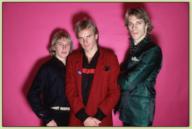 The Police returned to England and released their second album, “Regatta De Blanc”, jump starting what was to become a fast and furious rise to the top; they sold over five million singes and two million albums in 1979 alone. The group's singular combination of Sting's intensely reflective lyrics and distinctive tenor, Summer's textured guitar, and Copeland's driving rhythm elevated the trio to super group status with a sound that defied categorization. Labeled as anything from punk to reggae to new wave, the Police sound quickly became the boilerplate for struggling new artists. "Regatta De Blanc" saw the Police touring the world, from Asia to Australia, from Europe to North-Africa, from South to North-America. With the release of the mega-hit “Message In A Bottle” Stewart's percussion skills emerged as a recognizable and formidable force in the music world, landing him in a position of great respect among drummers in general, and a place of veneration in the world of rock drummers.. The Police returned to England and released their second album, “Regatta De Blanc”, jump starting what was to become a fast and furious rise to the top; they sold over five million singes and two million albums in 1979 alone. The group's singular combination of Sting's intensely reflective lyrics and distinctive tenor, Summer's textured guitar, and Copeland's driving rhythm elevated the trio to super group status with a sound that defied categorization. Labeled as anything from punk to reggae to new wave, the Police sound quickly became the boilerplate for struggling new artists. "Regatta De Blanc" saw the Police touring the world, from Asia to Australia, from Europe to North-Africa, from South to North-America. With the release of the mega-hit “Message In A Bottle” Stewart's percussion skills emerged as a recognizable and formidable force in the music world, landing him in a position of great respect among drummers in general, and a place of veneration in the world of rock drummers..
|
| 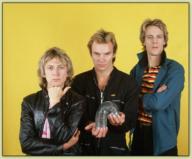 With the release of their third album, ''Zenyatta Mondata'', the band was firmly cemented as the most important rock band of the era. Record sales were astonishing; one hit followed after another. With songs like "Don't Stand So Close to Me" (and in spite of titles like "Dedododo, Dedadada"), the Police trio was recognized as a formidable force, both musically and in terms of social consciousness. In seemed as if the Police, or some incarnation of them, were everywhere. Sting began appearing films and his image was quickly becoming an icon in the music world. With the release of their third album, ''Zenyatta Mondata'', the band was firmly cemented as the most important rock band of the era. Record sales were astonishing; one hit followed after another. With songs like "Don't Stand So Close to Me" (and in spite of titles like "Dedododo, Dedadada"), the Police trio was recognized as a formidable force, both musically and in terms of social consciousness. In seemed as if the Police, or some incarnation of them, were everywhere. Sting began appearing films and his image was quickly becoming an icon in the music world. |
| 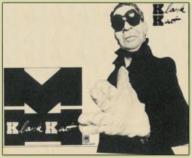 Stewart, fervently loyal to Tama drums, was adopted by the company as stellar star attraction, garnishing media exposure for Tama and the Japanese business culture. Stewart also gained notoriety as his alter-ego, Klark Kent; a mysterious performer who made a brief appearance on music charts in the late 1970's. Kent released the single "Don't Care" on an obscure pseudo-label called Kryptone, that was distributed by none other than A&M Records. The single was followed up by a collector's album that was pressed on green vinyl and packaged in a die-cut double K cover. Stewart vehemently denied any connection to the artist, maintaining Kent was a native of the Welsh fishing village, Llandyc KKK. But Copeland aficionados, a growing off-shoot of the Police fan base, were not fooled. Copeland's vocals, his endearingly quirky personality, and his goofy, wry sense of humor were easily recognizable, especially in lyrics such "Don't care if you wanna hang around/Don't care 'cause I'm the neatest thing in town/If you don't like my arrogance, you can suck my socks." These “artistic outings”, combined with four years of relentless touring and studio recording eventually led to over-exposure and band burnout. Stewart, fervently loyal to Tama drums, was adopted by the company as stellar star attraction, garnishing media exposure for Tama and the Japanese business culture. Stewart also gained notoriety as his alter-ego, Klark Kent; a mysterious performer who made a brief appearance on music charts in the late 1970's. Kent released the single "Don't Care" on an obscure pseudo-label called Kryptone, that was distributed by none other than A&M Records. The single was followed up by a collector's album that was pressed on green vinyl and packaged in a die-cut double K cover. Stewart vehemently denied any connection to the artist, maintaining Kent was a native of the Welsh fishing village, Llandyc KKK. But Copeland aficionados, a growing off-shoot of the Police fan base, were not fooled. Copeland's vocals, his endearingly quirky personality, and his goofy, wry sense of humor were easily recognizable, especially in lyrics such "Don't care if you wanna hang around/Don't care 'cause I'm the neatest thing in town/If you don't like my arrogance, you can suck my socks." These “artistic outings”, combined with four years of relentless touring and studio recording eventually led to over-exposure and band burnout. |
| 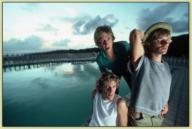 In response to this, Stewart, Andy, and Sting decided to record their next album, “Ghost In the Machine” on the remote and tranquil Caribbean island of Monserrat. However, instead of enjoying the relaxed and productive climate they had anticipated, the band members found themselves squabbling like rival siblings. Cantankerous debate over a myriad ofissues, primarily that of song construct and selection, drove new producer Hugh Padham to resign after just a few days' work. Thankfully, he acquiesced and return to brave the volatile atmosphere of competing egos. The album was finally released in 1981 and was instantlysuccessful, though the uneasy relationship between the band members was not resolved so quickly. In response to this, Stewart, Andy, and Sting decided to record their next album, “Ghost In the Machine” on the remote and tranquil Caribbean island of Monserrat. However, instead of enjoying the relaxed and productive climate they had anticipated, the band members found themselves squabbling like rival siblings. Cantankerous debate over a myriad ofissues, primarily that of song construct and selection, drove new producer Hugh Padham to resign after just a few days' work. Thankfully, he acquiesced and return to brave the volatile atmosphere of competing egos. The album was finally released in 1981 and was instantlysuccessful, though the uneasy relationship between the band members was not resolved so quickly.
|
| 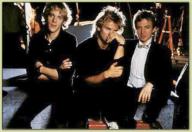 A fifth album, “Synchronicity”, perhaps the band's most artistically diverse and mature venture, was released in the fall of 1983. It was destined to be the final chapter in the Police saga. During the “Synchronicity” tour, despite a wildly successful performance at Shea Stadium in New York and a firm hold on the top of music charts everywhere, the band members determined the Police were close to an end. A fifth album, “Synchronicity”, perhaps the band's most artistically diverse and mature venture, was released in the fall of 1983. It was destined to be the final chapter in the Police saga. During the “Synchronicity” tour, despite a wildly successful performance at Shea Stadium in New York and a firm hold on the top of music charts everywhere, the band members determined the Police were close to an end. |
| 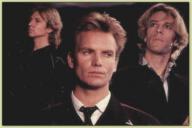 They reconvened temporarily to play on a three day tour for Amnesty International and attempted to put together a “best of” album. But in the middle of that endeavor, Stewart injured himself playing polo, which curtailed plans to re-record some songs. That project was nixed and this seemed to confirm Stewart, Andy, and Sting's fears that they would fall victim to artistic stagnation and formulaic repetition in their work. All three felt the need for a bit of fresh air and new, independent challenges in their careers Even the certainty of continued, climbing success didn't alter their decision and the band pulled the plug at its peak. Anticlimactically, they chose to release a “Greatest Hits” album in 1986, but it contained only one re-recorded song, “Don't Stand So Close To Me ‘86” - and even that decision was made with great discord between the three. They reconvened temporarily to play on a three day tour for Amnesty International and attempted to put together a “best of” album. But in the middle of that endeavor, Stewart injured himself playing polo, which curtailed plans to re-record some songs. That project was nixed and this seemed to confirm Stewart, Andy, and Sting's fears that they would fall victim to artistic stagnation and formulaic repetition in their work. All three felt the need for a bit of fresh air and new, independent challenges in their careers Even the certainty of continued, climbing success didn't alter their decision and the band pulled the plug at its peak. Anticlimactically, they chose to release a “Greatest Hits” album in 1986, but it contained only one re-recorded song, “Don't Stand So Close To Me ‘86” - and even that decision was made with great discord between the three. |
|   1983 - still now on : SoundtracksIn 1983 ,while recording 'Synchronicity' Stewart was working on the soundtrack to a Francis Ford Coppola movie called 'Rumblefish',which earned him a Golden Globe Award nomination. The following year he directed So What?--a 35-minute movie comparing the punk scene of 1977 to that of 1982.
In 1985 Stewart releases a movie on his own, based on a journey to Africa to explore the roots of rhythms, called'The Rhythmatist'.
More offers arrive on Stewart table, and day by day, Stewart becomes one of the most requested musician in Hollywood.
On the decade that follows the Eighties, the world of soundtracks keeps on being the main job for the drummer, now better know as composer.
Stewart also ventured into the realm of television, penning the themes for George Lucas's Droids and Ewoks Saturday morning cartoons and composing the music for 'The Equalizer', an Emmy Award-winning television show that subsequently spawned 1988's The Equalizer and Other Cliff Hangers, an instrumental album composed and performed entirely by Copeland.
|
|  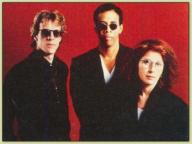 1989 -1991 : Animal LogicStewart also ventured back into the world of popular music in 1989 when he formed the group Animal Logic with bassist Stanley Clarke and singer Deborah Holland, ultimately releasing two self-titled albums. |
|  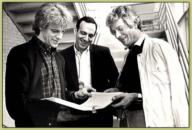 1986-1994 : Opera, ballet and otherHaving already composed a 20-minute ballet version of King Lear for a San Francisco troupe in 1986, he wrote his first full-blown production in 1989, the three-hour Holy Blood and the Crescent Moon. The piece was selected to open the Cleveland Opera's 14th season and was later performed by the Fort Worth Opera in Texas. The performance was met with a negative reaction for Copeland's lack of experience and praise for what he accomplished as an "untrained rock musician." One critic writing in the Christian Century called Holy Blood "one of the most significant moral statements to come from the arts community in many years."
As for Copeland himself, he told Musical America, "I thought opera was a guy ... with his chest pumped out making a loud noise. I had no idea what kind of a door was being opened to me. Opera is the ultimate art form. There's nothing that can freeze your blood like the combination of drama and music." The genre had captured Copeland's interest, and he later composed Horse Opera (1993) for British television, and the mini-opera Cask of Amontillado (1994), based on the Edgar Allan Poe short story of the same title.
In 1994 he launched an innovative tour with a sampling of percussion groups from countries around the world, including Zaire, Spain, and West Africa. |
|  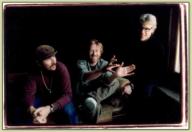 1999-2002 : OysterheadIn 1999 Stewart got asked to produce a song in the Primus album, an alternative US rock band whose bassist Les Claypool is known as one of the most interesting musicians of the decade.
Stewart got involved and find him so impressive that made him play with Les on some improvised stuff; they both jammed and asked Trey Anastasio, from Phish, to join for a Festival to be held in New Orleans in 2000, where Les has been invited. The three of them rehearsed on some classic tunes, like 'House Of The Rising Sun' and some Led Zeppelin tracks; at the same time some original songs were written and that concert remained an unforgettable night.
It took some months to see the guys play together again, as some of the tracks written in 2000 resulted very good, and the critic was so enthusiastic the Stewart, Les and Trey decided to record an album, under the name of Oysterhead.
The band released and album in October 2001, and a tour of the US saw the band playing in front of screaming crowds, all waiting to listen to thee incredible musicians on the same stage. |
|  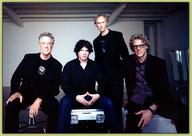 2001 : The DoorsIn 2001, it was announced that Stewart would
be touring with former Doors members Ray Manzarek and Robby Krieger and the Cult's Ian Astbury as the Doors of the 21st Century. Copeland later sued the group for breach of contract, claiming they reneged on a promise to use him on tour and in the studio, but the suit was amicably settled with Manzarek and Copeland trading kind words in the press. Next was soundtrack work for the Showtime series Dead Like Me and a guest appearance on guitarist Rusty Anderson's Undressing Underwater. |
|  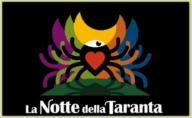 2002-2006 : Orchestralli and the Italian ConnectionIn 2003 Stewart played a short tour in Italy with the percussion quartet Ensemble Bash and a small orchestra. The tour was documented on the CD/DVD package Orchestralli, released by the Ponderosa label in 2005 , later on he participated to La Notte Della Taranta Festival in Italy.
|
|  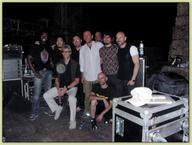 2005-2006Stewart started Gizmo, a new project with Vittorio Cosma on keyboards, Dodo N'Kishi on vocals and percussion (later replaced by Raiz), Mauro Refosco on percussion, Armand Sabal Lecco on bass and vocals and Phil-X on guitar( later replaced by avant-garde guitarist David Fiuczynski ). The band did a some dates in Italy in 2005 and 2006 and made their U.S debut on September 16, 2006 at the Modern Drummer Drum Festival.
|
|  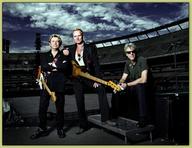 2007-2008 : The Police Reunion TourStewart reunited with the Police in 2007, celebrating the band's 30th anniversary with a worldwide tour |
|  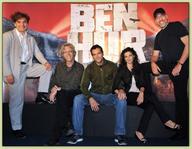 2009Stewart composed the musical score for BEN HUR LIVE©, the major arena extravaganza. Coming to The O2 this September BEN HUR LIVE© is thrilled to announce that Stewart Copeland will be the live narrator of the epic show.
BEN HUR LIVE© is directed by Philip Wm. McKinley, the script by British author Shaun McKenna, and the production is designed by Mark Fisher, famous for the opening and final ceremonies of the Olympic Games in Beijing.
|
|
|  | |  | | 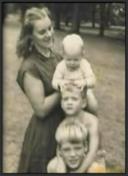 Lorraine with Miles, Ian and Stewart Lorraine with Miles, Ian and Stewart |
| |  | |  |
 | |  | | 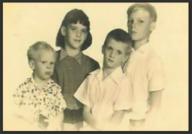 Stewart, Lennie, Ian and Miles (from left to right) Stewart, Lennie, Ian and Miles (from left to right) |
| |  | |  |
 | |  | | 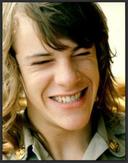 Sandbanks, Bournemouth 1971 Sandbanks, Bournemouth 1971 |
| |  | |  |
 | |  | | 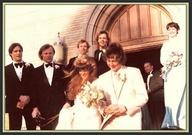
The Copeland brothers ( from left to right Ian, Miles, Andy (Summers) and Stewart ) at Kim Turner's wedding. |
| |  | |  |
|

